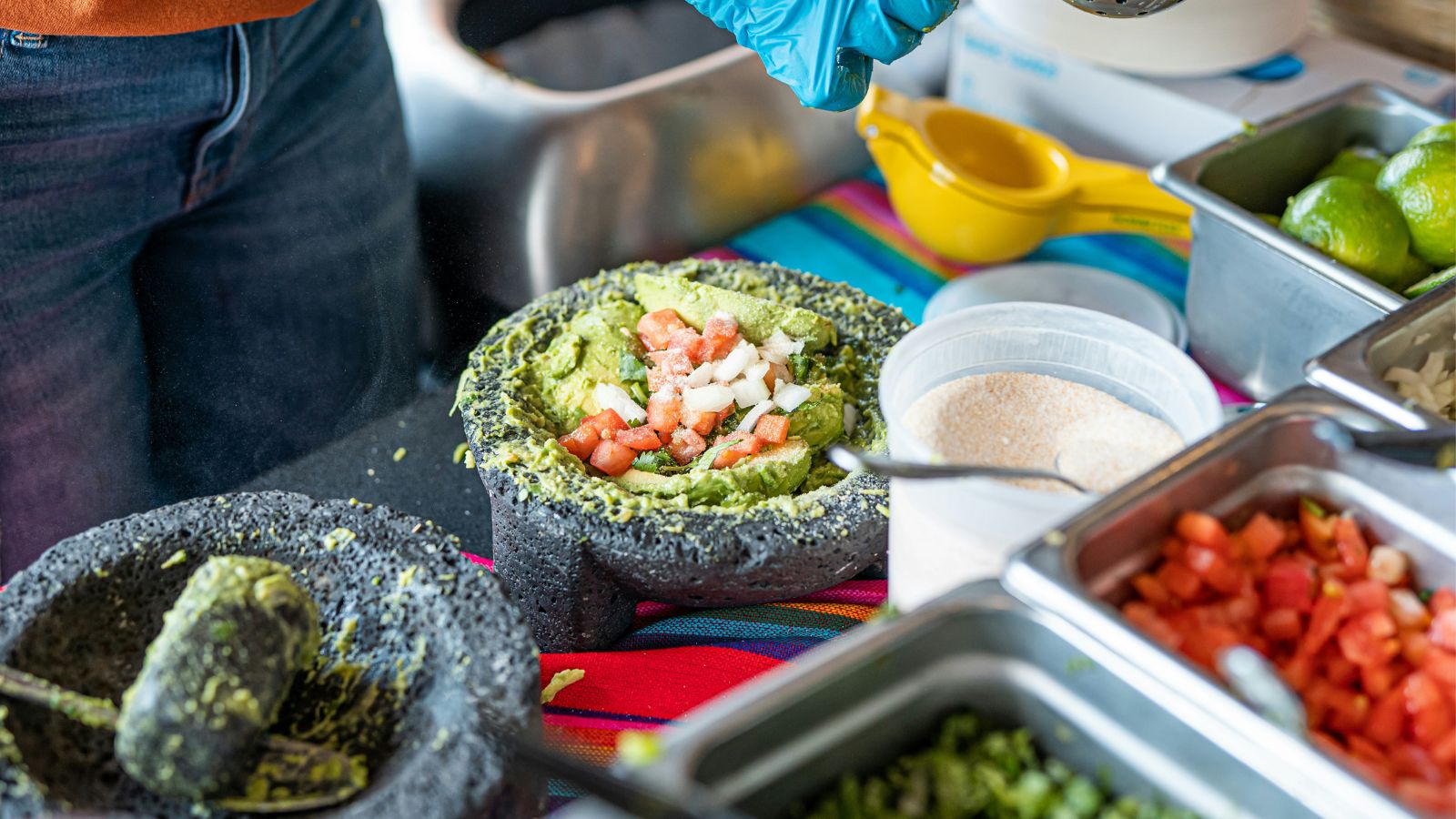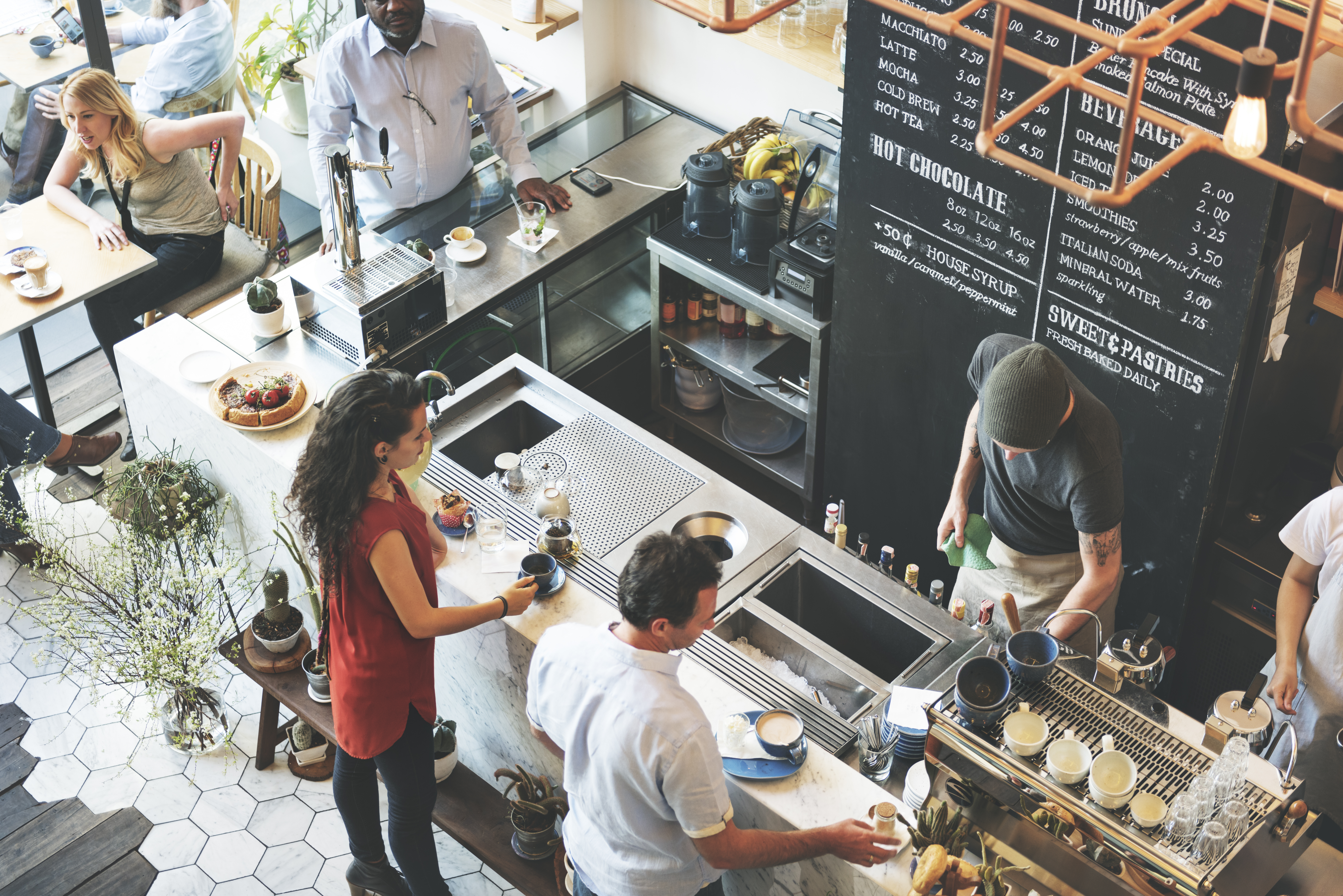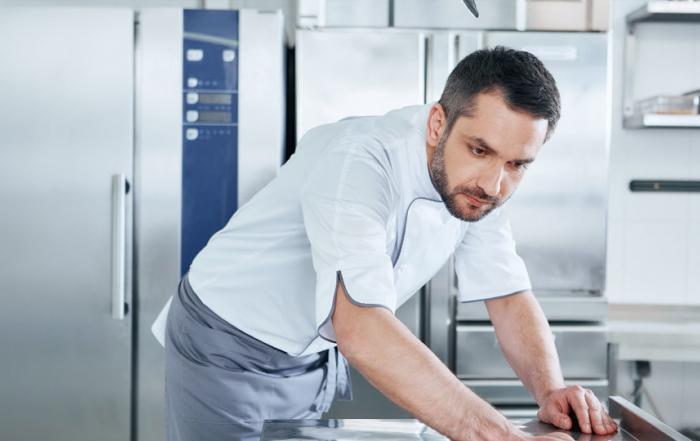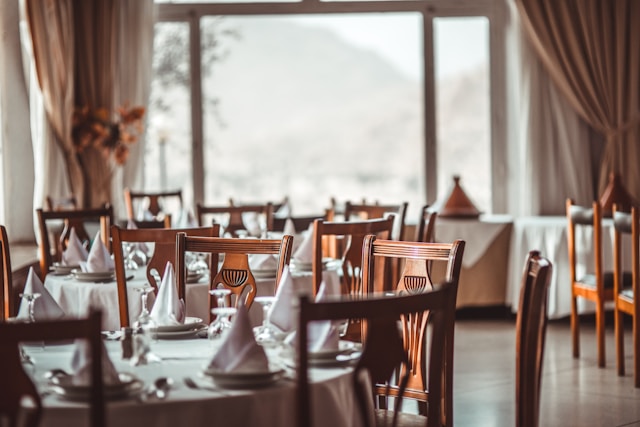10 ways your kitchen can be a healthier place

As all of us working in the food service industry know the importance of food safety. That includes the four key areas one needs to focus on: cleaning, separating, cooking and chilling. However, the next time you take stock of your very efficient kitchen, consider all the training, learnings and processes you had to put in place to ensure it runs like clockwork. Then perhaps acknowledge if there are any quick and obvious points you are missing? From storing oysters to cracking eggs over a flat surface, here’s a few simple tips to make your kitchen a healthier place.
1. Don’t overfill your refrigerators
Whilst it might seem obvious, in a busy kitchen where everyone is rushing about, it’s important to ensure your refrigerators aren’t being overfilled. Inside the cold air needs to be able to circulate, as this is how it keeps the food chilled throughout. If your refrigerator is crammed full, the unit has to work even harder to make sure the air can circulate. This not only creates inefficiencies, but it can also lead to unsafe food.
2. Always wash fruit and vegetables
Yes, we always clean fruits and vegetables before eating, cutting, or cooking – but remember that even if you discard the peel (case in point: a grapefruit) it is still important to scrub fruits and vegetables under running water as germs on the peel or skin can get inside fruits and vegetables when you cut them.
3. Check your mussels and throw out any where the shells don’t open when cooking
The simplest preparation often brings out the best in fresh fish, so make sure you are doing it right. Mussels must be alive to ensure their freshness – so check that their shells are closed – this ensures they are alive. If any are open, they should close when tapped or squeezed. Fresh mussels should be stored in a dry bowl or container covered with a damp cloth. Never cover with a lid as they will suffocate.
4. Don’t wash meat
Meat and poultry are cleaned during processing, so further washing is not necessary. It’s important to ensure you (and your staff) never use soaps or detergents on meat or poultry products as they can contaminate food with chemicals and make the meat unsafe to eat.
5. Store oysters with the curved side downwards
Always keep oysters stored with the curved (convex) side downwards. This helps to retain the fluid in the shell and keep them alive. Also remember to s tore the oysters in a deep bowl (to prevent leaks) and away from other open foods. Do not store below raw meat or fish.

6. Wash hands for a minimum of 20 seconds
Whilst the optimal length of time for handwashing depend on many factors, including the type and amount of dirt on the hands and the setting (eg in a hospital versus a kitchen). Nonetheless, evidence suggests that washing hands for about 20-30 seconds removes more germs from hands than washing for shorter periods.
7. Ensure food cools down before placing it in the refrigerator
It’s common sense, but if you have hot food leftovers, make sure you let the food cool before placing it into the fridge. Not only does the fridge have to work harder to compensate but you could inadvertently put other food in the fridge at risk.
8. Crack eggs over a flat surface
When you tap a fresh egg on the edge of a bowl, you don’t break just the shell. The thin membrane surrounding the white and the yolk also ruptures, allowing tiny shell shards to mix with the liquid and egg remnants to fly around your cooking area. However if you do it on a flat surface it is clear where you need to clean. Cracking the egg on a flat surface, like a counter makes a clean break. That way, the membrane stays intact, meaning no shell in your scramble.
9. Ensure you are separating foods
Ideally, store raw and ready-to-eat food in separate fridges, freezers and display units. If they are in the same unit, store raw meat, poultry, fish and eggs below ready-to-eat food. Unwashed fruit and vegetables should also be kept separate from ready-to-eat food and above raw meat.
10. Install a digital food safety solution
From digitizing pen and paper checklists to monitoring fridge and freezers – as well a range of other kitchen temperatures, digital food safety solutions will undoubtedly make your kitchen a healthier place. Phenium’s Ai powered kitchen intelligence has avoided over 2,400 food safety incidents since it launched in 2019. The app has also saved over $1.2 million in food soiling costs, so it’s a no brainer when it comes to making your kitchen a healthier place. Call it metrics and chill.


